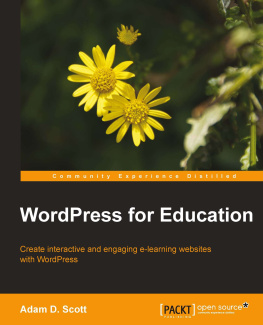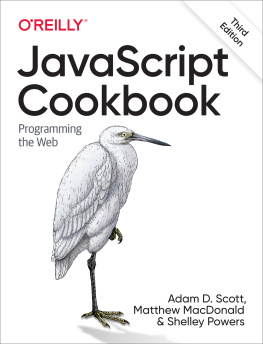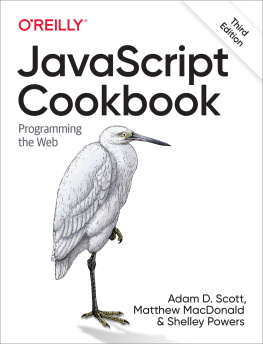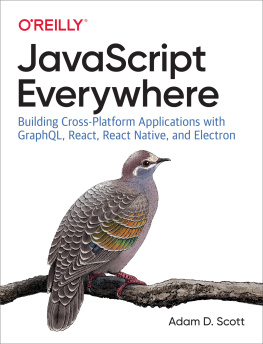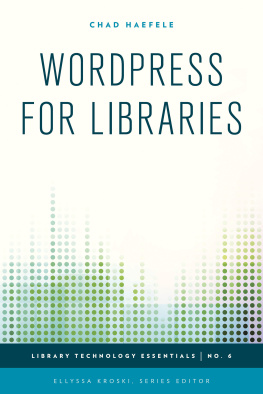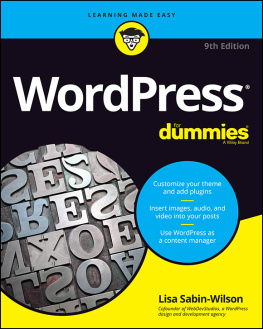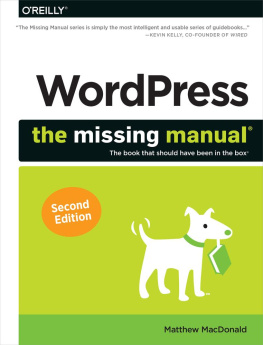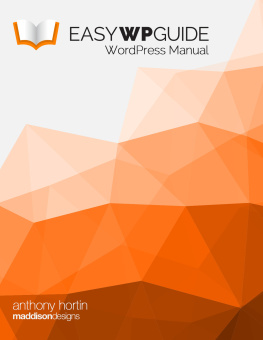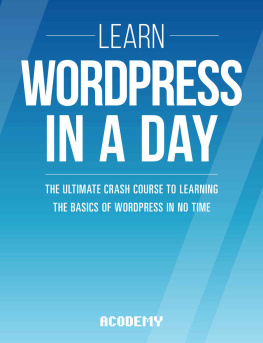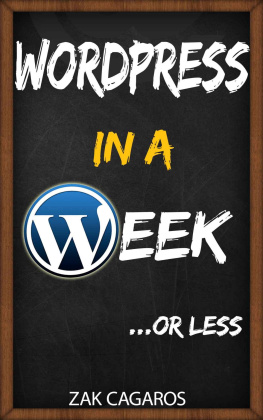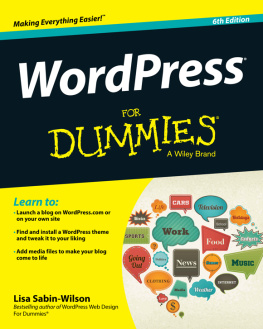Adam D. Scott
About the Author
Adam D. Scott is an educator, designer, digital book developer, husband, and father living in Connecticut. He has been a classroom teacher for six years where he focuses on web technologies with project-based outcomes. He writes about the intersection of design, technology, and learning on his personal site, www.adamdscott.com.
I would like to thank my wife, Abigail, for lovingly supporting all my ideas, no matter how far-fetched; my sons, Riley and Harrison, who are a constant source of energy and inspiration; my parents for encouraging my interests in technology and learning; Judy, for giving me the opportunity and freedom to explore the world of education; Sarah and Sonali, for their encouragement and editorial guidance; Leena, for her management and organizational assistance; John and Sam, for their expertise and thoughtful advice; and the WordPress core team and plugin developers, for creating an incredible platform.
About the Reviewers
John Eckman is a digital strategist and consultant, and one of the founding organizers of WordCamp Boston. He has created and maintained a number of popular WordPress plugins, and is active in multiple open source communities and projects.
He blogs at www.openparenthesis.org, tweets as @jeckman, and speaks frequently at conferences on open source content management, e-commerce, and community. He holds a PhD from the University of Washington, Seattle, an MIS from Northeastern University, Boston, and a BA from Boston University.
He has technically reviewed the following books for Packt Publishing:
- WordPress 3 Ultimate Security
- WordPress 3 for Business Bloggers
- WordPress 3 Cookbook
I'd like to thank Packt Publishing and the WordPress community (developers, designers, and users), without whom none of this would be possible.
Sam Rose is a student and will be a Computer Science graduate soon. He has carried out book reviews for a variety of technologies and subjects including Ruby, Rails, ANTLR, WordPress, and Career Development.
He enjoys working with Ruby and Python most, as well as dabbling in newer languages on the side such as Scala and Haskell.
When not coding, he can be found blogging at http://samwho.co.uk.
www.PacktPub.com
Support files, eBooks, discount offers, and more
You might want to visit www.PacktPub.com for support files and downloads related to your book.
Did you know that Packt offers eBook versions of every book published, with PDF and ePub files available? You can upgrade to the eBook version at > for more details.
At www.PacktPub.com, you can also read a collection of free technical articles, sign up for a range of free newsletters and receive exclusive discounts and offers on Packt books and eBooks.
http://PacktLib.PacktPub.com
Do you need instant solutions to your IT questions? PacktLib is Packt's online digital book library. Here, you can access, read and search across Packt's entire library of books.
Why Subscribe?
- Fully searchable across every book published by Packt
- Copy and paste, print, and bookmark content
- On demand and accessible via web browser
Free Access for Packt account holders
If you have an account with Packt at www.PacktPub.com, you can use this to access PacktLib today and view nine entirely free books. Simply use your login credentials for immediate access.
Preface
In the summer of 2008, I began a personal blog powered by WordPress and quickly fell for the ease and extensibility of the platform. As an educator, I had tried a number of tools to power course websites, but had to be satisfied with the results. With the fall semester approaching, I decided to try WordPress in the classroom. As the academic year progressed, I found that I was able to effectively mold WordPress to fit the needs of my students.
In recent years the popularity of WordPress has exploded. It is estimated that nearly 15 percent of the top million websites and 22 percent of all new websites are powered by WordPress (http://wordpress.org/news/2011/08/state-of-the-word/). These staggering numbers can be attributed to the WordPress community, which has built thousands of useful plugins atop of the already impressive WordPress core. As an increasing number of educators use WordPress in the classroom, the education-specific plugin library grows, making WordPress an ideal solution for educators.
What this book covers
, Installing and Configuring WordPress , covers the installation of WordPress on a web server, explores the WordPress dashboard, and discusses the difference between posts and pages.
, Setting Up Our Class Site , covers how to build a basic course website by adding and editing posts and pages, changing the look of the site with themes, and enhancing the site's functionality with widgets.
, Enhancing WordPress with Plugins , discusses the use of WordPress plugins to add additional features to our site. This chapter will guide you through the process of installing plugins and provide a list of plugins that are useful in an education setting.
, Enabling a Multisite Network , describes the process of running a network of sites from a single WordPress installation. This is ideal for powering student blogs and portfolios.
, Creating a Social Network with BuddyPress

